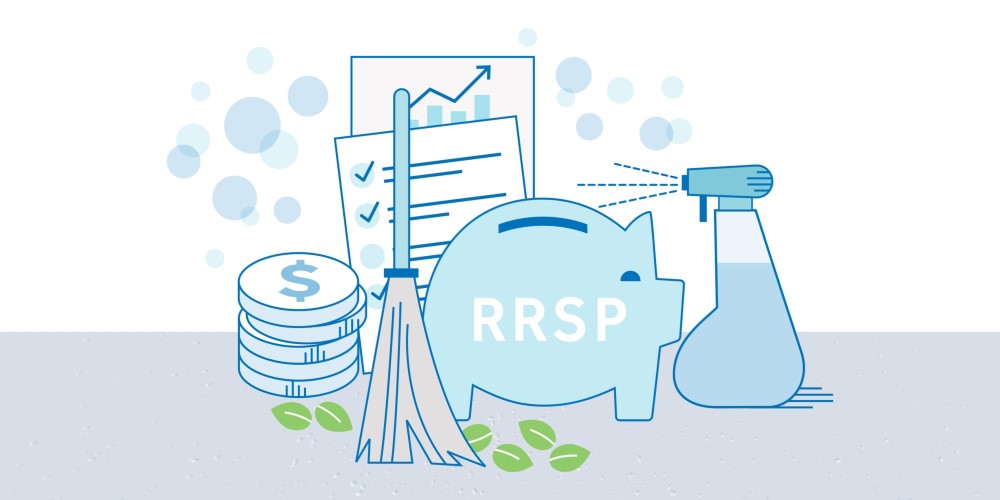There’s something about the fresh feeling spring’s arrival brings that puts us in the mood to clean and organize everything from our homes to our yards. Nothing beats that sense of calm after it’s all done.
Here are seven steps for spring cleaning your finances that will have you feeling just as good about your money as you do about your freshly mowed lawn.
1. Evaluate your debt load and repayment plan
Staying on top of what you owe is a critical step anytime you’re reviewing your finances. Add up the total amount you’re paying towards your debts each month and evaluate that against your cash flow. Are you in a position where you can afford to put a bit extra towards those repayments? If so, do it because it’ll save you money in the long term.
If you find yourself feeling overwhelmed by the total of your debt repayments, perhaps consider if debt consolidation is right for you (our debt consolidator calculator can help). If it is, you can streamline your payments and potentially save on interest as well.
2. Balance your monthly budget
Look at the money you have coming in and going out every month. Pay attention to the total amount you’re earning versus spending (try our budget calculator), but also take note of the due dates of your bills and payments. Do they all fall around the same time, for example at the beginning of the month?
Balancing your budget is just as much about managing your cash flow as it is about allocating your funds wisely between savings and spending, needs and wants. If possible, staggering your monthly bill payments to align with your pay cheques (either bi-weekly or bi-monthly) can help with that.
3. Check your credit report
Checking your credit report regularly is part of credit 101. If you haven’t looked at it in a while, spring is a great time to do so especially if you’re thinking of taking out a new loan to build a new deck or put in landscaping, or if you’re looking at buying a home.
Even if you’re not looking to borrow funds or apply for a new mortgage, reviewing your credit report helps you understand where you stand and what’s impacting your overall credit score (for better or worse). You can find opportunities to improve your credit health and identify anything that appears to be incorrect so you can address it right away.
4. Revisit your retirement plan
You may have recently looked at your RRSP contributions when you filed your income taxes, but did you take the time to thoroughly check up on your retirement plan? For this you may want to book an appointment to talk with your financial advisor for a holistic review, including updating your long-term goals if they’ve changed.
5. Reassess your insurance coverage
Another one of those less exciting tasks, but important nonetheless. Life can change fast and often updating your insurance coverage is the last thing on your mind, especially during major events such as marriage or welcoming a baby. Beyond health and life insurance, consider protection for your assets (home, car) and even for your debts (credit card, mortgage, personal loans). Find out what coverage you have and most importantly, is it enough?
6. Look up your reward balances
Even the most reward-savvy individuals can lose sight of where all their reward account balances are at. Investing a little time checking up on the balances of your reward accounts and your options for redeeming them may uncover a happy surprise. If you have a Servus Mastercard® that earns you Servus Circle Rewards®, you can check your balance by signing into online banking.
You might find you have enough points to cover a portion — maybe even all — of a special purchase you were already planning to make (new coffee maker anyone?). Using reward points toward purchases or redeeming for cash-back means more money back in your pocket.
7. Organize and declutter your paperwork
Having a system for filing important statements/documents for easy reference when you need them can go a long way toward simplifying your finances (not to mention reducing stress). Designate a cabinet or drawer for all the important physical documents you need to keep around and file them away according to type (house, car, insurance, etc.).
Going digital for things like bank statements and household bills will reduce paper clutter (and save paper!). If need be, storing them on your computer or an external hard drive will also save space in your home.
There you have it! Follow these seven steps and you’ll enjoy feeling fresh and organized about your finances this spring.


